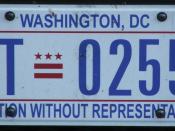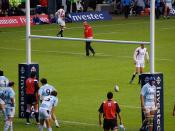"For Imposing Taxes on us Without our Consent"
The section of the Declaration of Independence titled "The Charges Against the King is extremely important. The English Declaration of Rights included a similar section, so without indicating the revolutions' causes it would have been very difficult to justify independence. Today and during the time of the revolution many of the accusations seemed rather weak and unsupported. However there were some that were considered by all to be significant infractions. One of these is "no taxation without representation" or more specifically "For imposing taxes on us without our consent.
The fact that England was taxing the people without representation was by no means a trivial matter. The principle of no taxation without representation dates back to Magna Carta in 1215. The Magna Carta would later become the basis for English law and is actually cited in the Petition of Right of 1628. In fact taxation without representation was the primary reason for the revolution in England and the execution of Charles I. The English considered the right of no taxation without representation to be very sacred as well.
The rationalization that the English used to reconcile this abuse was something called virtual representation. This idea was that if someone was a British subject they were represented by all the members of Parliament. This idea was absurd and was especially ridiculous for Americans who were thousands of miles away from England. The English really had no idea of what life was like in the colonies so how can they claim to represent the colonies. The colonists despised the idea of virtual representation. They were either represented or they were not.
The colonists clung to the principle of no taxation without representation with consistency. The government in England replied that the government could...


